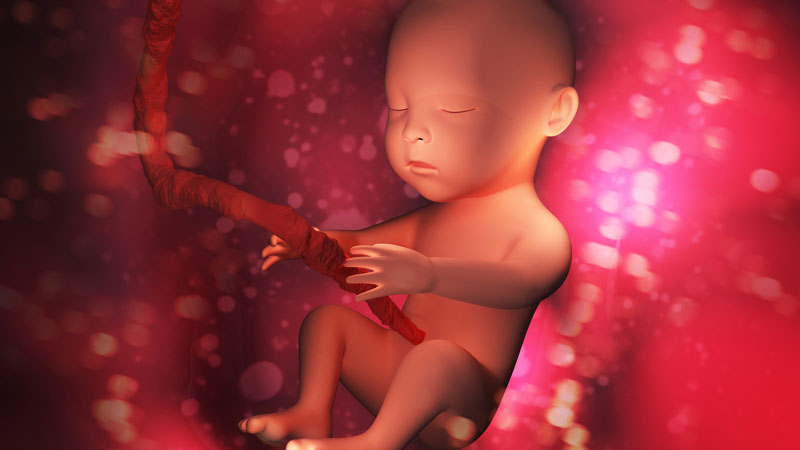A Wyoming district court judge has blocked two of the state’s pro-life laws from going into effect, siding with the pro-abortion plaintiffs who brought a lawsuit against the state.
On November 18, Teton County District Court Judge Melissa Owens issued the permanent injunction against Wyoming’s “Life is a Human Right Act” (House Enrolled Act 88) and its law prohibiting chemical abortions (Senate Enrolled Act 93), claiming that they are “unconstitutional,” according to Jackson Hole News and Guide.
In March 2023, Wyoming Gov. Mark Gordon signed a prohibition on chemical abortions, which are typically committed through a two-pill regimen of mifepristone and then misoprostol, and allowed the “Life is a Human Right Act” to go into effect. The “Life is a Human Right Act” prohibits all abortion in the state, with few exceptions. Both were supposed to go into effect immediately, but pro-abortion plaintiffs sued.
According to Cowboy State Daily, the plaintiffs challenging the laws include an abortion facility, an abortionist, an abortion support group, an obstetrician/gynecologist, and two women. The defendants include the state of Wyoming, Gordon, Wyoming Attorney General Bridget Hill, Teton County Sheriff Matthew Carr, and Jackson, Wyoming, Chief of Police Michelle Weber, according to the summary judgment order.
REACH PRO-LIFE PEOPLE WORLDWIDE! Advertise with LifeNews to reach hundreds of thousands of pro-life readers every week. Contact us today.
News and Guide reported on November 19 that Gordon intends to appeal the decision to the state’s Supreme Court, which had previously declined to rule on the case and sent the case to Owens.
Owens stated in the November 18 ruling in Johnson v. State of Wyoming that the pro-life laws “suspend a woman’s right to make her own health care decisions during the entire term of pregnancy and are not reasonable or necessary to protect the health and general welfare of the people.”
Cowboy State Daily reports that Owens also stated that the court considers both chemical and surgical abortions to be “health care,” both when the expectant mother is physically healthy and ill.
The permanent injunction means abortion is legal in Wyoming up until “fetal viability,” the point in pregnancy in which the unborn child is likely to survive outside of the womb, which is typically around 22 to 24 weeks.
In her siding with the pro-abortion plaintiffs, Owens also claimed: “The Court cannot reconcile how a small group of prenatal cells, such as a zygote, that has only the potential of life, can trump the fundamental right of a living, breathing, pregnant woman to make her own medical decisions.”
Even if the Court did recognize the personhood of the human being in the zygote stage, another statement in the ruling suggests that this would not sway the decision.
“The Health Care Amendment does not prohibit a person from making their own health care decision if their decision impacts any other person,” Owens wrote, after rejecting the defendant’s argument that abortions do not fall under the Amendment’s provisions.
News and Guide reported that Gordon issued a statement after the ruling that confirmed his intention to appeal the decision.
“I remain committed to defending the constitutionality of this law and the sanctity of life,” he said.
Gordon’s record on pro-life legislation is contentious, as he vetoed a bill in March of this year that would have put further restrictions on abortion facilities and required pregnant women to have ultrasounds before getting an abortion.
At the time, Gordon said that he issued the veto so that the lawsuit regarding the Life is a Human Right Act and chemical abortion ban could stay “on track for a speedy resolution,” according to WyoFile.
“I understand the Legislature’s effort to improve Wyoming’s pro-life legal framework and preemptively clarify some of these legal questions,” Gordon wrote in a letter to Wyoming Secretary of State Chuck Gray in March 2023. “However, I am nonetheless concerned that, in practice, this bill would instead complicate and delay the resolution of these central and foundational constitutional questions.”
He said that if the Legislature wants to address whether abortion is compatible with the Wyoming Constitution, the people should have a chance to vote on that in the ballot referendum.
WyoFile reported that Gordon signed a bill in 2022 that would ban most abortions in the state in the event that Roe v. Wade was overturned. After the Supreme Court did overturn it, the bill was set to go into effect, but Owens blocked that pro-life law with a temporary restraining order and temporary injunction.
LifeNews Note: McKenna Snow writes for CatholicVote, where this column originally appeared.
The post Wyoming Governor Will Appeal Judge’s Ruling Blocking Abortion Ban appeared first on LifeNews.com.

